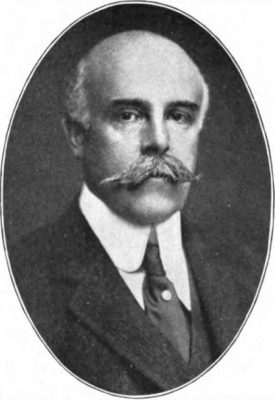The Founding Father of Eco-Fascism
The New Zealand murderer who shocked the world with his ghastly actions also fashioned himself as a political philosopher of sorts. He released a 74-page manifesto of seemingly insane ideological ramblings that bear some resemblance to alt-right ideology. The document provides an inside look into how evil ideas can override settled moral postulates such as that killing is wrong or that human beings have rights.
He regarded the wrong kinds of human beings as deserving of death – social discards – and so took matters into own hands, without remorse.
Many observers have been confused by his preferred mashup of ideas that resulted in his own personal moniker: eco-fascist. In addition to hyper-racism, he also celebrated nature and environmentalism. He complained of “Rampant urbanization and industrialization, ever expanding cities and shrinking forests, a complete removal of man from nature, with the obvious results.”
He writes:
There is no Conservatism without nature, there is no nationalism without environmentalism, the natural environment of our lands shaped us just as we shaped it. We were born from our lands and our own culture was molded by these same lands. The protection and preservation of these lands is of the same importance as the protection and preservation of our own ideals and beliefs.
The fusion of racism and environmentalism might strike us today as strange. One hundred years ago, not so much. In the Progressive era, it was a conventional ideological position to favor eugenic strategies of mass extermination combined with a preservationist outlook on natural resources. The connection might not be obvious at first but both are rooted in the principle of scientific management toward the elimination of dysgenic choices by individuals, particularly those inspired by the commercial marketplace.
Whether this position is left or right hardly matters. The eco-fascist view grows out of a consistent opposition to the principle of liberalism that society should be left alone to manage itself. It favors government dictatorship to override individual decision making in human procreation and commercial life while pushing complete government control of natural resources to prevent them from being used by commercial interests in a way that would contradict the principle of the survival of the fittest.
Founding Father

Let us travel back in time for a brief examination of the founding father of eco-fascism in the Progressive Era. His name was Madison Grant (1865-1937). He graduated with honors from Yale University in 1887 at the height of the fashion for race science, and then took a law degree from Columbia University. He forged a fabulous public career for himself as an author, advocate, and close friend of President Theodore Roosevelt. He is credited as the founder of modern wildlife management. He built the Bronx River Parkway, founded the American Bison Society, and helped create Glacier National Park and Denali National Park.
As president of the New York Zoological Society, he founded the Bronx Zoo and used it as a template for the testing of his theories.
His fanatical racism is perhaps best revealed in the stunning scandal of the treatment of Ota Benga (1883-1916), a member of the Mbuti tribe of the Congo who was sold by slave traders for display in America.
Madison Grant was personally responsible for caging Ota in the zoo to live with the apes in 1906, and forcing Ota to perform for the public as evidence of the truth of then-fashionable racial science. African-American newspapers expressed outrage at Ota’s treatment. The mayor of New York intervened and arranged for his release. Ota eventually moved to Virginia but fell into depression and shot himself ten years later.
It was hardly the only death traceable to Grant’s work. He was director of the American Eugenics Society and advocated from his post the culling of the unfit from the human population. He mapped a 100-year plan to perfect the human race, killing off group after group until racial purity had been obtained. He favored a state program to “get rid of the undesirables” in jails and hospitals. He warned against “misguided sentimentalism” that would put a break on his murderous plans to wipe out “social discards” and “worthless race types.”
All these views were laid out in what became a best-selling book of the Progressive Era: The Passing of the Great Race, which went to print the same year as Ota’s suicide, sold 16,000 copies in the U.S., and was translated into several languages. Hitler himself was a huge fan and even wrote Grant a personal letter that Passing was “my bible.” It was the first English-language book brought to print in Germany once the Nazis took power, and the book was eventually cited in the Nuremberg trials as evidence that the Holocaust was not just a German thing.
Grant was also president of the Immigration Restriction League, which propagated the idea that Southern Italians, Slavs, and Jews could not be allowed into the U.S. for fear that they would certainly poison the American racial stock. The League was the major influence in the passage of immigration restrictions in the early 1920s which were eventually used to limit immigration of Jews fleeing the Holocaust.
Far from having suffered disrepute for his views and actions, Grant was heralded as a pioneer in preservationism, having been awarded the gold medal of the Society of Arts and Sciences in 1929. He was a trustee of the American Museum of Natural History and a much-sought-after expert on naturalism, the environment, and race theory. There is even a species of Caribou named after him: Rangifer tarandus granti.
His views on environmentalism are the embodiment of absurdist Darwinism. Essentially it is this: the oldest and largest trees are clearly the master race and must be protected against any commercial use. “It is scarcely necessary to dwell on the crime involved in the destruction of the oldest and tallest trees on earth.” Anyone who would cut down such a tree, he said, should be regarded as a vandal and barbarian.
He was also a pioneer in gloom-and-doom rhetoric regarding the environment. From as early as 1894 through the end of his life, he warned about the coming disaster that would befall humanity from deforestation. From his point of view, it wasn’t just the great race that was passing but all of life on earth – unless we act now to put an end to the commercial economy and the free-range procreation of humanity. Only Madison Grant and his friends knew for sure which trees and which humans deserve to live or die.
The eco-fascist screed from the New Zealand murder comes across as crude and low-level, the wild ramblers of a trash-talking 20-something raised on 4chan, 8chan, and the most hateful parts of the Internet. It was not always so. Men with the same views, much more sophisticated in expression but just as violent in aim, once came from the Ivy League, occupied the highest levels of social and professional achievement right here in the U.S., and remained heroes of “Progressivism” for many decades after the Second World War.











